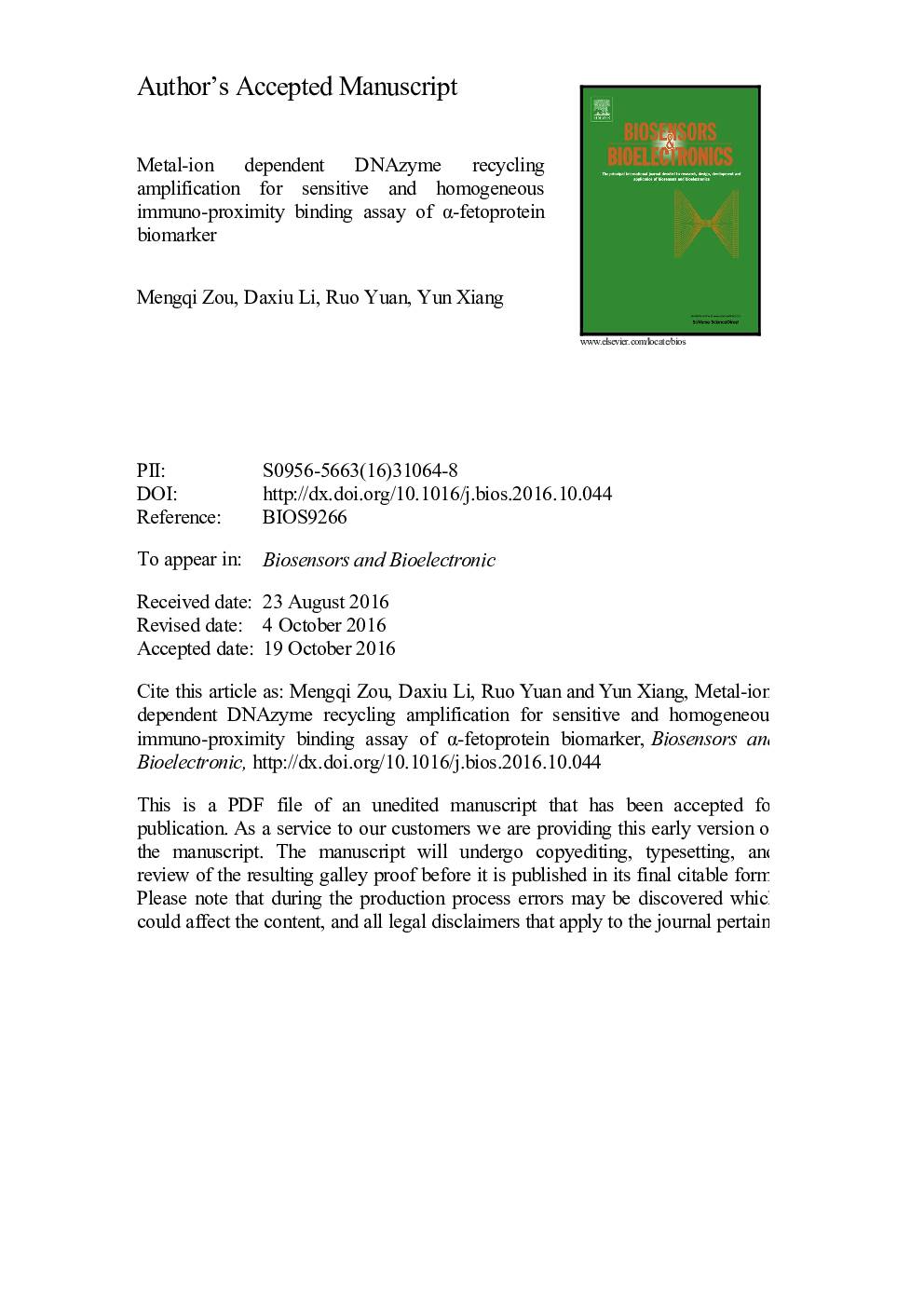| Article ID | Journal | Published Year | Pages | File Type |
|---|---|---|---|---|
| 5031648 | Biosensors and Bioelectronics | 2017 | 21 Pages |
Abstract
Based on target-induced immuno-proximity binding and metal ion-dependent DNAzyme recycling signal amplification, we describe the development of a homogeneous and sensitive fluorescent method for the detection of protein cancer biomarkers by using α-fetoprotein (AFP) as the model target. Two DNA strands with short complementary regions are conjugated to the AFP antibodies to prepare the recognition probes. The hybridization of the two DNAs in the absence of the AFP target molecules is inhibited due to the low melting temperature (Tm) of the complementary regions. The binding of the antibody-linked DNAs to the AFP target molecules can increase the local effective concentrations of the two DNAs and facilitate their hybridization with significantly increased Tm to form the catalytic cores of the metal ion-dependent DNAzymes. The fluorescently quenched hairpin substrate sequences further bind the catalytic cores to form the DNAzymes, in which the substrate sequences are cyclically cleaved by the corresponding metal ions to generate remarkably enhanced fluorescent signals for sensitive detection of AFP in the dynamic range from 2 to 500 pM with the detection limit of 1.8 pM. The sensing approach also possesses high selectivity toward the target AFP over other interfering proteins, and can be employed to detect AFP in human serum samples. The significant signal amplification in our approach avoids the involvement of any enzyme or nanomaterial labels and sensitive protein detection can be realized in homogeneous solution, which makes the developed method holds great potential for convenient and sensitive detection of various protein biomarkers for early disease diagnosis.
Related Topics
Physical Sciences and Engineering
Chemistry
Analytical Chemistry
Authors
Mengqi Zou, Daxiu Li, Ruo Yuan, Yun Xiang,
